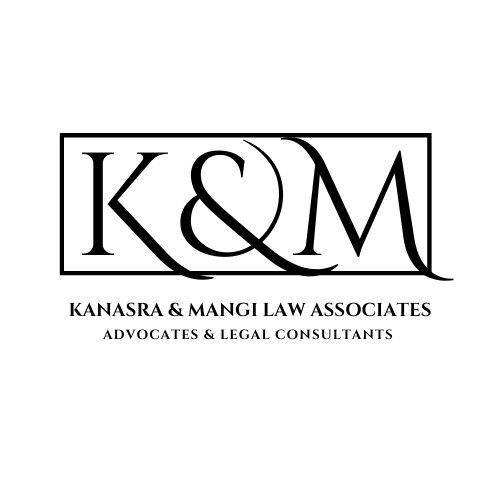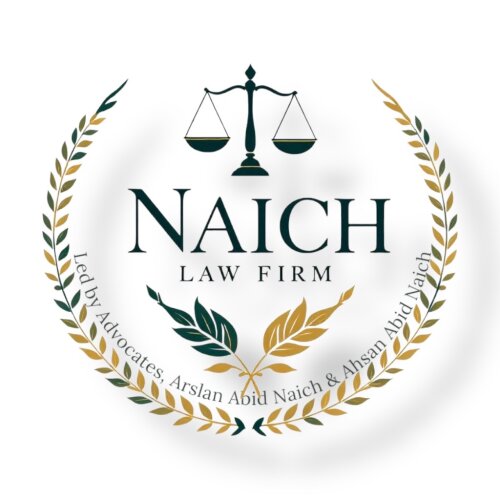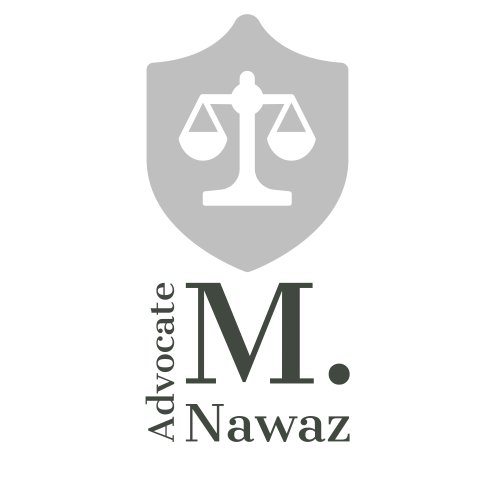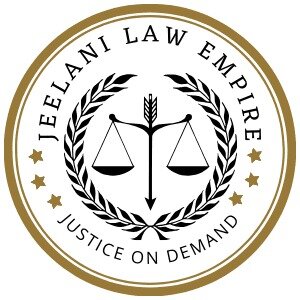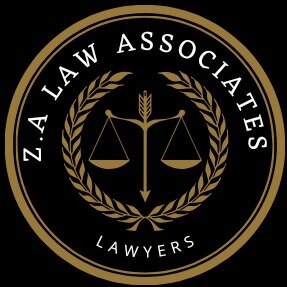Best Juvenile Law Lawyers in Karachi
Share your needs with us, get contacted by law firms.
Free. Takes 2 min.
List of the best lawyers in Karachi, Pakistan
About Juvenile Law in Karachi, Pakistan
Juvenile law in Karachi, Pakistan, is primarily concerned with the legal handling of minors who are involved in legal proceedings, whether as offenders, victims, or witnesses. The primary legislative framework governing juvenile justice in Pakistan is the Juvenile Justice System Act, 2018. This act aims to provide a rehabilitative approach to juvenile offenders, emphasizing their education and reintegration into society rather than punishment. The law defines a juvenile as a person below the age of 18 years and ensures that children are treated differently from adults in the justice system, focusing on safeguarding their rights and dignity.
Why You May Need a Lawyer
Hiring a lawyer with expertise in juvenile law can be crucial in several situations including, but not limited to, the following:
- If a minor is accused of committing a crime, legal representation ensures that the child’s rights are protected and the case is handled appropriately according to the juvenile justice system.
- When dealing with matters of child custody or guardianship disputes, a lawyer can provide guidance and represent your interests effectively.
- In instances of child abuse or neglect, a lawyer can assist in navigating the legal processes to ensure the child’s safety and well-being.
- If a child is a victim or witness in a criminal case, legal counsel can help manage the proceedings in a way that minimizes trauma for the minor involved.
Local Laws Overview
The Juvenile Justice System Act, 2018, is central to juvenile law in Karachi, focusing on rehabilitation rather than punitive measures for minors. Key aspects include:
- Juvenile Courts: Establishment of specialized juvenile courts to handle cases involving minors.
- Legal Protections: Enhanced legal protections ensuring the rights and privacy of juveniles are respected throughout legal proceedings.
- Diversion and Rehabilitation: Focus on diverting juveniles from the traditional criminal justice system towards programs that emphasize rehabilitation and skill development.
- Age of Criminal Responsibility: The act stipulates that children under the age of 10 cannot be held criminally responsible.
- Separate Detention Facilities: Segregated detention facilities for juveniles, distinct from adult prisons, to ensure appropriate conditions and treatment.
Frequently Asked Questions
What is the age limit for juveniles under the Juvenile Justice System Act, 2018?
Under the act, a juvenile is defined as a person under the age of 18 years.
Are juveniles tried in the same courts as adults in Karachi?
No, juveniles are tried in designated juvenile courts that specialize in handling cases involving minors.
What is the primary focus of juvenile justice in Karachi?
The primary focus is on rehabilitation and reintegration into society, rather than punishment, ensuring the best interests of the child are upheld.
Can a juvenile be sentenced to death in Pakistan?
No, under Pakistani law, juveniles cannot be sentenced to death.
Are there special measures during trial for juveniles?
Yes, measures include closed courtrooms and protection of the child’s identity to ensure the privacy and dignity of the juvenile.
How is legal representation provided to juveniles in Karachi?
Legal assistance is often provided by the state, but families can also hire private lawyers who specialize in juvenile law.
What happens if a juvenile is found guilty of an offense?
Rather than traditional punishment, the focus is on rehabilitation through education and vocational training programs.
Can parents or guardians be held accountable for the offenses of their children?
Generally, the juvenile justice system focuses on the child, but parental neglect or failure to supervise can result in separate legal implications.
What role do social workers play in juvenile cases?
Social workers are often involved in juvenile cases to provide support, counseling, and to facilitate rehabilitation programs.
Are there any alternatives to detention for juveniles in Karachi?
Yes, alternatives like community service, probation, and counseling programs are considered to encourage rehabilitation over detention.
Additional Resources
A number of resources and organizations can provide further assistance and information for those seeking legal advice on juvenile law:
- Legal Aid Offices: These offer free or low-cost legal advice and representation for those unable to afford private counsel.
- Child Protection and Welfare Bureau: This governmental body focuses on the protection of children’s rights and welfare.
- Human Rights Commission of Pakistan (HRCP): An organization that monitors, raises awareness, and provides assistance on issues including juvenile justice.
- Non-Governmental Organizations (NGOs): Various NGOs such as Madadgaar or Sahil work to protect children’s rights and provide legal assistance.
Next Steps
If you need legal assistance in juvenile law, consider taking the following steps:
- Consult a Legal Professional: Seek a lawyer who specializes in juvenile law to understand your rights and options.
- Contact Legal Aid Services: If affordability is an issue, reach out to legal aid organizations for support.
- Gather Necessary Documents: Collect all relevant documents related to the issue at hand, including identity records and any prior notices or legal documents.
- Understand the Process: Familiarize yourself with the juvenile justice system processes and any impending steps you need to be prepared for.
- Advocate for the Child’s Rights: Whether you are the child or a guardian, ensure that all actions taken are in the best interest of the child and focus on their well-being and rehabilitation.
Lawzana helps you find the best lawyers and law firms in Karachi through a curated and pre-screened list of qualified legal professionals. Our platform offers rankings and detailed profiles of attorneys and law firms, allowing you to compare based on practice areas, including Juvenile Law, experience, and client feedback.
Each profile includes a description of the firm's areas of practice, client reviews, team members and partners, year of establishment, spoken languages, office locations, contact information, social media presence, and any published articles or resources. Most firms on our platform speak English and are experienced in both local and international legal matters.
Get a quote from top-rated law firms in Karachi, Pakistan — quickly, securely, and without unnecessary hassle.
Disclaimer:
The information provided on this page is for general informational purposes only and does not constitute legal advice. While we strive to ensure the accuracy and relevance of the content, legal information may change over time, and interpretations of the law can vary. You should always consult with a qualified legal professional for advice specific to your situation.
We disclaim all liability for actions taken or not taken based on the content of this page. If you believe any information is incorrect or outdated, please contact us, and we will review and update it where appropriate.





